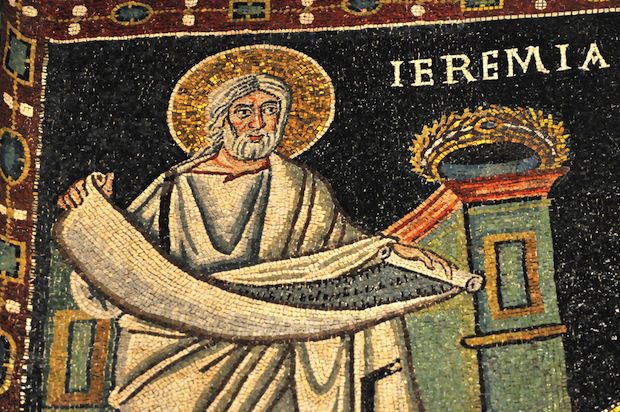America: From Israel to Babylon

My Southern Baptist friend and reader Ryan Booth cited this quote from Trevin Wax, from a piece he did on how a new generation of Southern Baptists differs from the old guard:
It’s common to hear the story of young evangelicals fleeing conservative churches and embracing center-left politics. I don’t see this happening among young Southern Baptist pastors. What I do see is less emphasis on bringing change through political engagement and more emphasis on dealing pastorally with the implications of a secularizing society.
When I talk with older Southern Baptists about recent cultural developments, I get the impression that many of them see mobilization of Christian voters as the best way to effect change. When I talk with younger Southern Baptists, I get the impression that the landscape has shifted to the point they expect to be a minority. Therefore, the strategy becomes more about preserving space for Christian morality and less about enshrining our views in law. This is a generalization, but I think there’s truth here: Older Southern Baptists are more likely to see the U.S. as Israel. Younger Southern Baptists are more likely to see the U.S. as Babylon. That’s a significant shift, and it leads to a different tone.
That expresses my view exactly. “Babylon” here refers to the Babylonian captivity, where the Israelites lived as strangers in a strange land. This is the reality of where orthodox Christians find themselves today. Those Christians who understand this and figure out how to live and to thrive in Babylon will make it. Those Christians who persist on thinking that we are living in the Promised Land will not, in large part because they will not have prepared themselves. If you haven’t read my TAC colleague Samuel Goldman’s piece from a while back on what he calls “The Jeremiah Option,” please do.
Take a look at these quotes from a report on a conference on marriage and the family in contemporary America that the Southern Baptist Ethics & Religious Liberty Commission had this week:
Addressing Christian ministry in a “post-marriage culture,” R. Albert Mohler opened the event by saying the crisis regarding the biblical, traditional definition of marriage as a permanent union of a man and a woman began “with the heterosexual subversion of marriage.”
“The divorce revolution has done far more harm to marriage than same-sex marriage will ever do,” the president of Southern Baptist Theological Seminary told the audience made up primarily of pastors and other young adults. Heterosexuals “showed how to destroy marriage by making it a tentative, hypothetical union for so long as it may last, turning it only into a contract” that produced a “consumer good,” Mohler said.
“By the time the moral revolution on same-sex relations arrived on the scene, most of the moral revolution had already happened,” he said.
More:
Western civilization is in the final stage of a moral revolution — one that is “happening at warp speed,” Mohler told attendees. British theologian Theo Hobson has said three things must happen for a moral revolution to occur. Those developments, Mohler said, are:
— “Something that was nearly universally condemned is now nearly universally celebrated.
— “That which was celebrated is condemned.
— “Those who refuse to celebrate are condemned.”
The church is now in a position of being “a moral minority,” Mohler said.
“We are accustomed to ministry from the top side in the culture, not from the underside,” he said. “We are accustomed to speaking from a position of strength and respect and credibility. And now we are going to be facing the reality that we are already, in much of America, speaking from a position of a loss of credibility.”
Responding to this situation, Mohler said, “is going to take an awful lot of Christian thinking. It’s going to take a lot of prayer, a lot of agonizing conversations. . . . the kind of conversations that take place in the middle of an emergency.”
More:
Other speakers encouraged attendees to think and act biblically toward those with whom they differ on these issues.
“We need to recognize that even though we disagree with the gay rights movement on many things, including sexual morality, including the definition of marriage, there are some human dignity issues involved,” ERLC President Russell D. Moore said. “And we also need to recognize that we have gay and lesbian persons created in the image of God who are treated with indignity and really with evil and wickedness in many places in the world.”
I am really impressed by where and how Russell Moore, Al Mohler, Trevin Wax and others are leading the Southern Baptists. I haven’t yet seen leaders in any church who are more aware of the nature of the times in which American Christians live, and the urgency of changing our response and way of living to meet the challenges of those times in an authentically Christian way. The rest of us small-o orthodox Christians — Catholic, Protestant, and Orthodox — need to watch them and learn.
Subscribe for as little as $5/mo to start commenting on Rod’s blog.